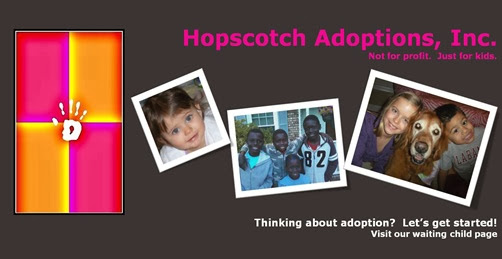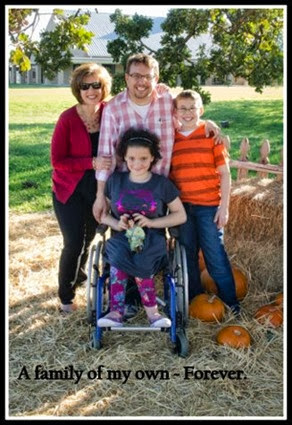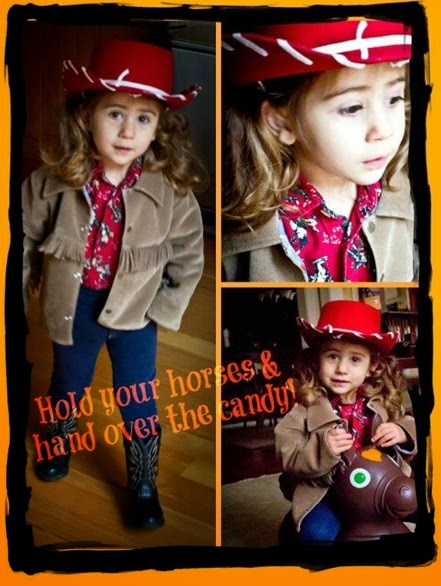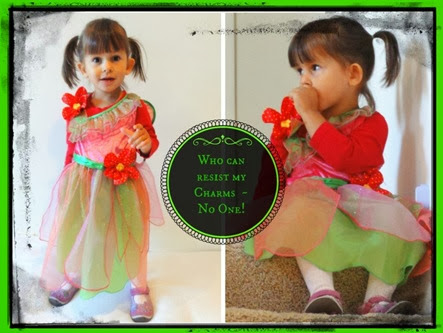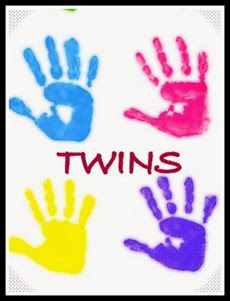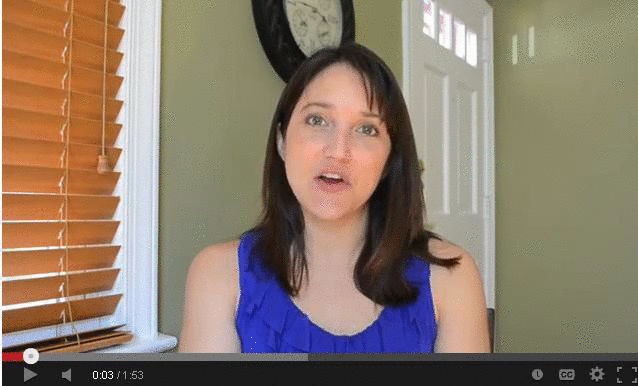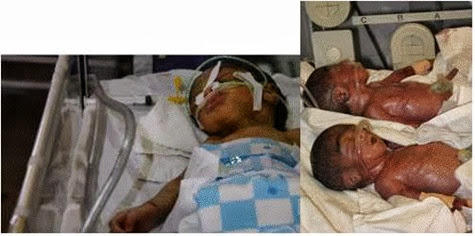Thursday, October 31, 2013
What's New With You and How To Record It
U.S. Citizenship and Immigration Services (USCIS) is pleased to introduce a new version of our online tool that allows customers to change their address more quickly and easily.
Beginning today, the easy to use Change of Address tool is online at www.uscis.gov. Customers will simply complete a single form with questions that guide them through the process. In addition, the updated tool is now compatible with multiple Web browsers and confirms the change by email.
The enhanced Change of Address tool is the result of customer feedback. Along with this improvement, we are soon enhancing other customer service tools on the Web and offering new options for customers calling our National Customer Service Center at 1-800-375-5283. As a reminder, USCIS offers its customers a number of online self-help tools. Applicants and their representatives can check case status, find average processing times, submit a case status inquiry (e-Request) or find a USCIS office any time at www.uscis.gov.
On November 1, USCIS will host a webinar for stakeholders and customers interested in learning more about the enhanced Change of Address tool and other online self-help tools. For more information and to register, please view the attached invitation or visit www.uscis.gov/outreach.
Tuesday, October 29, 2013
Wanted: A Family Of My Own
SOAR and Adoptive Families Provide Therapy Equipment for Armenian Orphan
 Considering the millions of orphans around the world, it is impossible to expect that one individual or even one organization could touch them all. However, there are many opportunities every day for people and groups to impact the life of just one child in need.
Considering the millions of orphans around the world, it is impossible to expect that one individual or even one organization could touch them all. However, there are many opportunities every day for people and groups to impact the life of just one child in need.
When adoptive mother Viviane Martini learned of a preschooler with mobility issues in an Armenian orphanage, she jumped into action. She knew that the little boy was receiving physical therapy and had been telling his caregivers that he was determined to learn to walk, despite his limited control over his head, neck, arms, legs and torso. Martini started searching for equipment that could help stabilize his core, so the child could focus his energies on building muscle and skills in his arms, legs and neck. She came across the Theratogs PTA systems and contacted the manufacturer for advice. A few emails later, Martini knew which product would work best for the little boy. She was prepared to fundraise the several hundred dollars in cost, but in stepped SOAR Chairman George Yacoubian. Without hesitation, Yacoubian offered to have SOAR pay for the stabilizing garments. A fellow adoptive family soon on their way to bring home their daughter from Yerevan volunteered to carry the items to Armenia. Martini purchased a few fine motor toys to go along with the Theratogs equipment and this week all were delivered to the young child who was not only excited, but also thankful for the gifts.
In the months to come, the little boy and his therapists can use the donated items to work on improving his gross and fine motor skills. And maybe just maybe while they do so, they will know that half a world away, there are people who care deeply about making a difference, even if only for one child at a time.
***
Many children like this little one are waiting for a family, just like yours to open their hearts and home to him. If you are interested in adopting visit our waiting child page, or contact us via email waitingchild@hopscotchadoptions.org
Monday, October 28, 2013
Our Time on Nightline
We are asking everyone who cares about kids and family to promote
an ABC News Nightline episode on international adoption.
Airing Tuesday night | October 29, 12:35 AM ET
Cynthia McFadden anchors the episode which exposes the complexities of international adoption. The show will include material and footage from the STUCK tour, and the heartwarming conclusion of an adoption saga of two children, a single mom, and the struggle they endured to become a family.
This show is important as it continues the conversation the STUCK tour started. Our campaign is growing and this media event supports our efforts to make children living outside of parental care a relevant social issue.
Both Ends Burning promotes family as the best solution for at-risk kids. We believe communication can change and influence kids' lives. The Nightline episode is part of an important communication platform.
Please watch this show, and tell everyone you know to do the same. It is one more step in the journey to get more kids into families.
Sunday, October 27, 2013
News from Bulgaria: TWINS!!
Congratulations to Guilford Nonprofit Consortium Nonprofit Management Institute 2013 Graduates
Guilford Nonprofit Consortium Nonprofit Management Institute 2013 class members: Maria Hanlin, Executive Director for Habitat for Humanity of Greater Greensboro; Debra Harrison, Executive Director for Happy Girl Ministries, Inc., Jeff Horney, Executive Director for Theatre Art Galleries; Jennifer Jacobs, Administrator for Greensboro Police Foundation; Ken Keeton, Director of Development and Community Involvement for Triad Health Project; Audra Volpi, Manager of Greensboro Housing Coalition; Susan McLawhorn, Chief Operating Officer of Habitat for Humanity of Greater Greensboro; Janet McNeal, Assistant Director of Journey to Medical Careers; Brenda Mewborn, Executive Director of Girls Incorporated of Guilford County; Laura Peoples, Executive Director of Bicycling in Greensboro (BIG); Robin E. Sizemore, Executive Director of Hopscotch Adoptions, Inc., Kerry Sparks, Director of Organizational Development for Habitat for Humanity of Greater Greensboro Scott Logan, Program Director for After Gateway, Inc.
The Institute is an educational and training program designed to meet the professional development needs of local nonprofit professionals and maximize their impact in serving our community. Participants focus on specific topics in nonprofit management and organizational development, which may be put to immediate use. These practical skills are designed to help participants enhance the capacity of their organizations.
The Institute is made possible through a collaborative effort with High Point University. it is hosted and facilitated by High Point University (HPU) and the Guilford Nonprofit Consortium. The Department of Human Relations, Sociology and Nonprofit Studies at HPU provides the participatory hands-on training and development curriculum that is the primary resource for the participants' professional development experience.
Supporting Children and Families When Adoption Dissolution Occurs
Source: https://www.adoptioncouncil.org/publications/adoption-advocate-no-62.html
Published August 2013 by Jon Bergeron, Jr., Ph.D. and Robin Pennington
Nicole Callahan, Editor
Chuck Johnson, Editor
Disruption or dissolution is something that no one involved with an adoption wants to happen, and much has been written about the prevention of this occurrence. The reality is that some adoptive families, despite years of effort and multiple and varied interventions, find themselves unable to remain together as a functioning family. A small yet increasing number of these families seek dissolution as a result of the relational and functional crises their family faces.
The focus of this article is adoption dissolution, which occurs when parents that have finalized an adoption relinquish their parental rights to that child; the child is then either adopted a second time by another family, or placed in the state foster care system. The term adoption disruption is also sometimes used in this context; however, technically a disruption occurs when a family is planning to legally adopt a child – who is typically in their custody as a foster child – but decides not to complete the adoption finalization. Disruptions typically occur within a matter of months after a child is placed in a family, whereas dissolutions can and do occur years after the adoption.
Think About It
 Think About It: "When a birth mother or family in the United States chooses adoption, our society respects, even applauds the selfless decision and action because we accept the decision in the context of what is best for the child... However, when this similar scenario plays out in third world countries, we criticize and question a mother's and families' decision to place a child up for adoption due to harsh practical realities." --Revealing A Dichotomy: by Craig Juntunen
Think About It: "When a birth mother or family in the United States chooses adoption, our society respects, even applauds the selfless decision and action because we accept the decision in the context of what is best for the child... However, when this similar scenario plays out in third world countries, we criticize and question a mother's and families' decision to place a child up for adoption due to harsh practical realities." --Revealing A Dichotomy: by Craig Juntunen
Saturday, October 26, 2013
Janelle Ison: Adoptee, Birthmom, and Adoption Advocate
Source: http://www.parkerhospital.org/adoptionperspectives
Janelle Ison had just turned 18 when she found out she was pregnant.
As an adopted person herself, her parents encouraged her to consider adoption, yet she dismissed the idea because of the overwhelming connection she felt with her unborn child and her worries that she would be viewed by her peers as a bad mother. On today’s show, hear about her unique journey that led her to ultimately place her son for open adoption. Also, hear how she recently connected with her birthmother and how blessed and fortunate she feels to have so much love and family in her life. To learn more about Janelle’s adoption journey, you can also view her personal video at: My Beautiful Son - Janelle's Adoption Story.
Janelle works at the National Council For Adoption (NCFA), an adoption advocacy nonprofit that promotes a culture of adoption through education, research, and legislative action. Janelle serves as the Director of Operations and plays an integral role in NCFA’s iChooseAdoption campaign. The overall goal of the campaign is to enable women facing unintended pregnancy to consider adoption more freely, understand their options and choices in order to make a fully informed decision, and increase public understanding of and appreciation for infant adoption and birthmothers. For more information please visit: iChooseAdoption
My Beautiful Son: Janelle Ison
Ichoose Adoption: National Council for Adoption
My Beautiful Son: Janelle Ison
Friday, October 25, 2013
Too Many Losses, Too Soon: Loss and Grief among Foster and Adopted Children
 Webinar Recap: If you missed last week's webinar, we found it to be immensely informative for families at any stage of the adoption process. “Too Many Losses, Too Soon: Loss and Grief among Foster and Adopted Children”. was presented by Madeleine Krebs, LCSW-C, the Clinical Coordinator at the Center for Adoption Support and Education. Madeleine has over 35 years of experience and has worked extensively with foster and adopted children who have experienced early trauma, grief and loss.
Webinar Recap: If you missed last week's webinar, we found it to be immensely informative for families at any stage of the adoption process. “Too Many Losses, Too Soon: Loss and Grief among Foster and Adopted Children”. was presented by Madeleine Krebs, LCSW-C, the Clinical Coordinator at the Center for Adoption Support and Education. Madeleine has over 35 years of experience and has worked extensively with foster and adopted children who have experienced early trauma, grief and loss.
The webinar served as a great reminder that everyone handles their grief and loss differently. An adopted child experiences loss on many levels through loss of their culture, loss of their religion, loss of racial connections, medical information, birth history, birth order, genealogical continuity, traditions, siblings, country and language. The loss never goes away and you can’t “fix” it. But what you can do is validate and affirm your child’s feelings and support them through the grieving process. It’s important to give the child permission to talk about their history and what they are feeling.
The webinar also highlighted the importance for adoptive parents to understand their own grief and loss in order to better understand and support their child through their grief and loss. Likely, your own experience with your parents will impact the way you parent your child? It’s also important to understand how you, the adoptive parents, process grief because your child looks to you for cues when it is acceptable to cry and grieve.
Now that the holiday season is approaching, ask your child what traditions they might have had prior to being adopted. If they had some traditions, decorations, foods, songs, games or other comforting rituals, try and incorporate them into your holiday season.
The Center for Education and Support (C.A.S.E.) is a great resource for the adoption community. C.A.S.E. has a large offering of resources for adoptive parents, adopted children, and adoption professionals. They also provide trainings, counseling and support. C.A.S.E's e-newsletter helps to keep you current with when upcoming webinars and adoption news. If you have not signed up for the C.A.S.E. e-newsletter, we would encourage you to do so.
By: Michelle Moreau, MSW, Post Placement Coordinator and Ghana Program Coordinator for Hopscotch Adoptions, Inc.
Here's a chance for left and right to agree: Lets give children a home.
Foster Friess: For orphans, family is a human right
Foster Friess 6 a.m. EDT October 17, 2013
Here's a chance for left and right to agree: Lets give children a home.
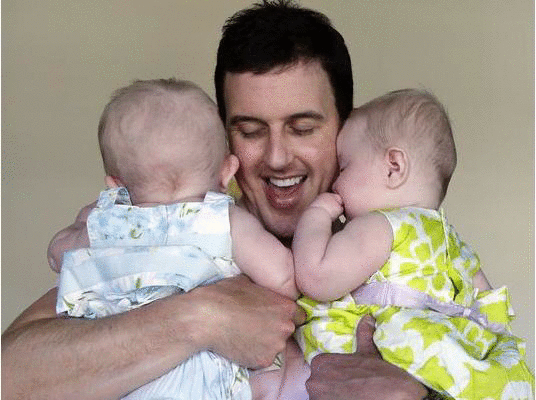
Daddy and twins.(Photo: Elaine Thompson, AP)
Story Highlights
- Every child should at least grow up in family, rather than without one.
- The United Nations reports that more than 18 million children worldwide have lost both parents
- Allocate foreign aid based on pro-adoption efforts in other nations.
It can be tough to find areas where left and right can agree. Consider the well-being of children: Americans often disagree about how to raise kids, how to educate them, even what to feed them.
So how about we start seeking common ground at a more basic level? Every child should at least grow up in family, rather than without one.
This is so obvious that we don't think about it much. But for many children a family is something they do not know. The United Nations Children's Fund reports that more than 18 million children worldwide have lost both parents to the ravages of AIDS, starvation, war or natural disasters.
Yet adoptions by U.S. families of children from other countries fell by over 62% in the last eight years. This is not due to lack of American demand. Would-be adoptive parents have to struggle for years through a bureaucratic obstacle course at an average cost of $30,000.
Many foreign governments allow children to languish for years in severely compromised lifestyles. The U.S. State Department is not only of little help but often contributes to the long delays.
Seeing this problem, my friend Craig Juntunen started the adoption activist group Both Ends Burning. This year, they released STUCK, a documentary revealing how we are neglecting the human rights of millions of orphans.
After a 60-city, 72-day bus tour brought the gripping film around the country, liberals and conservatives alike joined the cause.
Now, that nationwide spirit of cooperation migrates to the halls of Congress. Louisiana's Democratic Sen. Mary Landrieu introduced legislation called Children in Families First, or CHIFF. Sen. Roy Blunt, a Missouri Republican, has signed on to the bill along with many others in both houses, from both parties.
The goal: to get children into families, whether it's the birth family, relatives, a household in the child's birth country or an American couple.
Without increasing spending, the law creates a prominent State Department office advocating for vulnerable foreign children, making their welfare a key part of U.S. foreign policy. It would allow State to allocate foreign aid based on pro-adoption efforts in other nations. Countries that drag their feet, quite common currently, could lose a lot of money.
As Sen. Landrieu has said , she wants to ensure that the United States advocates for family preservation, family reunification and, when necessary, family creation through adoption.
And when the only good option for children is to join American families, her proposal ensures that U.S. immigration law makes the process as easy as possible.
Whatever your other convictions, we can all agree that children belong in families. Not only will CHIFF help children in need, but it provides our children with an example of cooperation and civility between left and right — two things we urgently need to do.
Foster Friess, a fund manager turned philanthropist, started LeftRightLeftRightForwardMarch.com
In addition to its own editorials, USA TODAY publishes diverse opinions from outside writers, including our Board of Contributors. To read more columns like this, go to the opinion front page or follow us on twitter @USATopinion or Facebook.
Thursday, October 24, 2013
Waiting Child Notification
Hopscotch Adoptions, Inc.
Not for profit. Just for kids.
Featured Waiting Children
 Not Every Story begins with "When you were a baby..."
Not Every Story begins with "When you were a baby..."
Your donation is the beginning of a waiting child's story...They're counting on you!
"Chance"

Sweet Chance was born in September of 2012 with Down syndrome. It is unknown whether he has issues with this heart, as he is awaiting an appointment with a cardiologist at this time. He smiles and laughs when entertained. He makes sounds and takes toys. When being talked to he reacts but it is a bit delayed. He sleeps and eats well. He is developing slowly, but you can see his progress. He is a very sweet boy who is loved by everybody. His caretakers love him very much and there is also a volunteer who spends a lot of time with him at his orphanage.
Update September 2013: We have good news for Chance! He has recently had heart surgery, which was very successful and he is recovering right now. We will gather more details as they become available, but the change in his behavior is obvious to his caretakers. He has become much more active. He smiles more and plays (although he is still weak after surgery). He eats and sleeps well. Measurements: Weight - 6 kg; Length - 68 cm; Head circumference - 42 cm. Additional reports, photos and videos are available upon request.
"Imogen"

Imogen was born in July 2002 and is a healthy child who has been diagnosed with mild mental delay. Strabismus in her left eye was surgically corrected. While Imogen can speak in sentences of varying length, her expressive speech appears to be affected by disorders, such as dyslalia and agrammatism. She may also have some learning disabilities.
Imogen is described as a sociable, kind girl with a sweet temperament. She attends school and has attained some rudimentary academic knowledge. She works hard on her studies and behaves respectfully toward her teachers. Imogen can cut with scissors, arrange objects according to a pattern, thread beads, identify her name, age, and gender, and describe what is happening in a picture.
Imogen likes to swim, draw and sing, and participate in aikido. She has well-developed fine and gross motor as well as self-help skills. She can respond to requests and follow instructions. Imogen enjoys group activities. She wishes to be adopted and it is expected that she would thrive and progress in a family. Additional reports, photos and videos are available upon request.
"Erika"

Erika was born in February 2006 and has been diagnosed with cleft lip and palate (surgically corrected), congenital cataracts (surgically corrected), secondary glaucoma of the left eye, and epilepsy. She also has profound mental delay.
Erika can walk when led by a hand. She does not speak and is described as introverted, unresponsive, and distant. Erika does not play with toys or interact with people in her environment. She has no self-help skills.
Erika is affected by severe psychological conditions, including persistent self-injury, anxiety, as well as possible psychosis, depression, hallucinations, and autism. A number of medications have been tried to alleviate Erika's symptoms, but success has been limited. Additional reports, photos and videos are available upon request.
"Ariana"

Ariana is a physically healthy girl whose neuropsychic development is significantly delayed. In infancy, Ariana was diagnosed with I-II degree hypoxic-ischemic encephalopathy. She was successfully treated for high instep on her feet and now walks and runs independently. Her urogenital system is being monitored for infections, but has been stable for a long time.
As of January 2012, Ariana was speaking in short sentences and enjoying musical activities with her peers. She could draw circles and immersed herself in pretend games with friends. She can dress, undress, wash and eat without assistance. Ariana enjoys the outdoors and spending time on the playground.
Ariana attends mainstream primary school with the help of a resource teacher. She also spends time with a baba through the Grandmother Grandchild program. The staff at the orphanage report that there's a positive trend in Ariana's development. Additional reports, photos and videos are available upon request.
Ariana's birth mother reportedly used alcohol during the pregnancy.
"Olivia"

Olivia was born prematurely in April 2006 and has been diagnosed with Turner Syndrome, microcephaly, and a hemangioma on the left thigh. Her development is delayed. Olivia walks independently, including up and down stairs, speaks in simple sentences and follows complex verbal instructions. She asks many questions and insistently seeks answers. She is curious about her environment and has a positive attitude toward herself. Olivia enjoys participating in group games and is a distinct leader among her peers. She is a cheerful, affectionate girl who likes music. She attends mainstream kindergarten with the help of a resource teacher. The caretakers at her orphanage have positive expectations for Olivia's continued development. Additional reports, photos and videos are available upon request.
![]()
![]()
![]()
![]()
![]()
For access to
Hopscotch Adoption's password protected waiting child page, please complete the attached Privacy Declaration and fax it to 888-837-3824. You can also scan the completed form to Heather or Megan. We'll get right back to you with your unique password.
Hopscotch Adoptions
Not for profit. Just for kids.
Stay Connected
Respect and Scorn
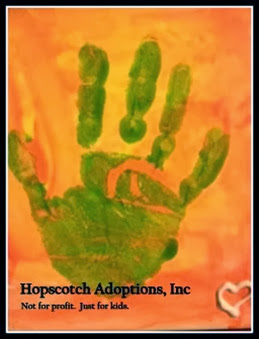 How can we respect AND scorn the difficult decisions of birthmothers, universally rooted in the child's best interest, based on where a child is born? Check out this great post from Craig Juntunen blog.
How can we respect AND scorn the difficult decisions of birthmothers, universally rooted in the child's best interest, based on where a child is born? Check out this great post from Craig Juntunen blog.
Revealing A Dichotomy: by Craig Juntunen
I was at a gathering the other night and as we were talking in a small group the subject of adoption came up. A new acquaintance told the story of how her young niece had recently chosen adoption for her newborn daughter. The young woman's decision was based on her difficult personal circumstances: she is a teenager, she is not married, she does not have a full-time job, and has little ability to support the baby's needs and development.
The reaction of the group was unanimous. They recognized the painful decision this young mother made was grounded and rooted in love, and although giving a child up for adoption is easily understood to be an emotionally difficult decision, it is an intelligent and appropriate decision representing the best interest of the child. We all respected the young woman's decision.
When a birth mother or family in the United States chooses adoption, our society respects, even applauds the selfless decision and action because we accept the decision in the context of what is best for the child. However, when this similar scenario plays out in third world countries, we criticize and question a mother's and families' decision to place a child up for adoption due to harsh practical realities. Even though the decision to utilize adoption represents the best course of action for the child, international adoption has become ultra-controversial, and is viewed differently than an adoption that takes place in our country. We have developed a distinctive arrogance of what is right and wrong for a child seemingly based on borders and geography. Many argue taking a child out of one culture to join a family in another culture is robbing a child of the birth heritage and should never happen. We have a hard time accepting cross-pollinating race and heritage as a cultural asset, and view it instead as a personal liability. Think of the many friends you know who were born in one country and during their childhood moved to another country. Ask them if moving to another country was traumatizing and damaging to their human condition, or ultimately an experience that allowed them to expand their human condition. Better yet, ask any child living in an orphanage whether they would prefer to have culture and heritage or a permanent family.
If we are really going to evolve into a functioning global society, why can't we accept, embrace, and promote cross-border adoption in the same light we accept and promote domestic adoption? Are we still quietly clinging to the notion that a segregated society is a better society?
Any family, irrespective of where they live, can offer a child the love, the safety and the nurturing every child needs. Why do we draw the line and believe domestic adoption is a positive part of society, and international adoption is a dirty word? Why are we allowing kids to grow up in stark, filthy orphanages or on the streets, just because the family they could be part of today requires them to get a passport and a plane ticket?
What are your thoughts?
It's the little things that mean so much.
 It's the little things that mean so much. Anyone that knows me, knows that I can't do without my morning "Double Tall, 1 Pump Mocha, Non-fat, No whip Latte, Steamed to 120". Despite my crazy order, the awesome barista's of our local Starbucks treated me with a little love this morning and surprised me with their new spinach and feta pastry. Fabulous!!
It's the little things that mean so much. Anyone that knows me, knows that I can't do without my morning "Double Tall, 1 Pump Mocha, Non-fat, No whip Latte, Steamed to 120". Despite my crazy order, the awesome barista's of our local Starbucks treated me with a little love this morning and surprised me with their new spinach and feta pastry. Fabulous!!
When I am having a bad day, nothing feels better than to do something kind and unexpectedly for someone else. I usually buy the car behind me their coffee and my day instantly gets better. Has someone treated you to an unexpected kindness? I hope so. If not, start a trend and see what happens.
Wednesday, October 23, 2013
News from Georgia: Georgia is back on the map!
Rare skull sparks human evolution controversy
By Elizabeth Landau, CNN
Source: http://www.cnn.com/2013/10/17/world/europe/ancient-skull-human-evolution/index.html
(CNN) -- Fragments of humans' ancient relatives are scattered across the globe. Sometimes a tooth or a few bones are all we have to tell us about an entire species closely related to humans that lived thousands or millions of years ago.
So when anyone finds a complete skull of a possible human ancestor, paleoanthropologists rejoice. But with new knowledge comes new controversy over a fossil's place in our species' very fuzzy family tree.
In the eastern European nation of Georgia, a group of researchers has excavated a 1.8 million-year-old skull of an ancient human relative, whose only name right now is Skull 5. They report their findings in the journal Science, and say it belongs to our genus, called Homo.
"This is most complete early Homo skull ever found in the world," said lead study author David Lordkipanidze, researcher at the Georgian National Museum in Tbilisi.
Skull 5 is the fifth example of a hominid -- a bipedal primate mammal that walked upright -- from this time period found at the site in Dmanisi, Georgia. Stone tools and animal bones have also been recovered from the area.
The variation in physical features among the Dmanisi hominid specimens is comparable to the degree of diversity found in humans today, suggesting that they all belong to one species, Lordkipanidze said.
But "if you will put separately all these five skulls and five jaws in different places, maybe people will call it as a different species," he said.
Now it gets more controversial: Lordkipanidze and colleagues also propose that these individuals are members of a single evolving Homo erectus species, examples of which have been found in Africa and Asia. The similarities between the new skull from Georgia and Homo erectus remains from Java, Indonesia, for example, may mean there was genetic "continuity across large geographic distances," the study said.
What's more, the researchers suggest that the fossil record of what have been considered different Homo species from this time period -- such as Homo ergaster, Homo rudolfensis and Homo habilis -- could actually be variations on a single species, Homo erectus. That defies the current understanding of how early human relatives should be classified.
Because of Skull 5 and the other Dmanisi fossils, scientists are "rethinking what happened in Africa," Lordkipanidze said.
The Dmanisi individuals appear to have long legs and short arms, based on the fossils that have been found, said study co-author Marcia Ponce de Leon, of the Anthropological Institute at the University of Zurich, Switzerland, at a press conference.
The braincase of Skull 5 is 546 cubic centimeters, which is smaller than expected.
The biggest brain case found at Dmanisi is 75% larger than the smallest one, which is consistent with what is observed in modern humans, said study co-author Christoph Zollikofer of the Anthropological Institute in Zurich.
At Dmanisi, researchers believe carnivores and hominids were fighting over animal carcasses. The stone tools appear to have been used in butchering, based on the cut marks on animal bones, Lordkipanidze said. They are comparable to tools that have been found in Africa.
"It's a real snapshot in time," Lordkipanidze said of the Dmanisi site.
Skull 5, excavated in 2005, was matched to a jaw discovered in 2000. The first example of a hominid fossil at Dmanisi was discovered in 1991.
So what species came after Homo erectus in the history of human relatives? Scientists have no idea, Zollikofer said.
"It would be nice to say this is the last common ancestor of Neanderthals and us, but we simply don't know," Zollikofer said.
The Dmanisi fossils are a great find, say anthropology researchers not involved with the excavation. But they're not sold on the idea that this is the same Homo erectus from both Africa and Asia -- or that individual Homo species from this time period are really all one species.
"The specimen is wonderful and an important contribution to the hominin record in a temporal period where there are woefully too few fossils," said Lee Berger, paleoanthropologist at the University of the Witwatersrand in Johannesburg, in an e-mail.
But the suggestion that these fossils prove an evolving lineage of Homo erectus in Asia and Africa, Berger said, is "taking the available evidence too far."
Berger led the team that discovered Australopithecus sediba, a possible human ancestor that lived around 2 million years ago in South Africa. He criticized the authors of the new study for not comparing the fossils at Dmanisi to A. sediba or to more recent fossils found in East Africa.
Ancient fossils question human family tree
Lordkipanidze said he and colleagues consider A. sediba to be earlier and more primitive than the Dmanisi hominids, and that there's "no doubt" the Georgian fossils belong to the Homo genus.
But the selectivity of fossils compared to them in this study may have artificially biased the results toward the researchers' hypotheses, Berger said.
Ian Tattersall, curator emeritus at the American Museum of Natural History's anthropology division, said in an e-mail that there's "no way this extraordinarily important specimen is Homo erectus," if the skull fragment discovered in Trinil, Java, Indonesia, defines the features of the Homo erectus group.
The New York museum's Hall of Human Origins takes visitors on a tour through human evolutionary history, showing distinct Homo species reflected in major fossil finds such as Turkana Boy (Homo ergaster) and Peking man (Homo erectus).
The Dmanisi discovery may find a place there too, but it's probably not going to result in relabeling other species, Tattersall said.
"Right now I certainly wouldn't change the Hall -- except to add the specimen, which really is significant," he said.
There is an area of about 50,000 square meters at Dmanisi still to be excavated, so Skull 5 may have even more company.
Tuesday, October 22, 2013
They're Counting On You!
Not every story begins with "When you were a baby..."
Your donation is the just the beginning of a waiting child's story.
They're counting on you!
Help Save Babies in Ghana Today!
We need your help to raise $5,000 urgently. Please review the video link https://vimeo.com/77017036 password: babies
Currently, 30% of admissions to the NICU at Ridge Regional Hospital in Accra, Ghana are dying!. For 2012, there were 411 newborn deaths! Currently, oxygen by nasal cannula is the only respiratory support available. Cannulas are often shared among babies, increasing infection risks, and the oxygen supply is frequently depleted. The high level of neonatal loss is devastating to parents and demoralizing to staff. Many of the deaths could be prevented with a few simple changes. We need to raise funds for some renovations to the physical space and then we will introduce technology that is widely utilized in the US to improve outcomes. A little can go a long way to give these babies a chance to live. We are committed to improving these outcomes.
 It is all tax-deductible. Please share on your facebook or blogs.
It is all tax-deductible. Please share on your facebook or blogs.
Monday, October 21, 2013
Saturday, October 19, 2013
The Academy of Georgian Heritage Opening on Sunday, October 20, 2013 Scholarships Available
 Classes start this Sunday, October 20th at the Academy of Georgian Heritage! Find out about available Scholarships offered by the Georgian Association!
Classes start this Sunday, October 20th at the Academy of Georgian Heritage! Find out about available Scholarships offered by the Georgian Association!
Dear Friends,
The Academy of Georgian Heritage will have its first day of classes this Sunday, October 20th. We encourage you to visit their website to find out more about the program.
The Georgian Association in the USA is proud to announce a limited number of scholarships for the students in need. Please contact the academy at info@georgianacademy.org to learn about this opportunity.
Sincerely,
Georgian Association in the United States of America, Inc.
2300 M Street NW, Suite 800
Washington, DC 20037
Friday, October 18, 2013
News From Armenia Regarding Post Adoption Reporting
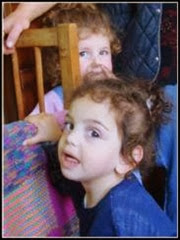 News From Armenia: Armenia has recently amended their adoption law, which included changes to the post adoption report requirements. The Ministry of Justice now requires post adoption reports for a period of five years after you arrive home with your child. The post adoption report schedule going forward will be the following:
News From Armenia: Armenia has recently amended their adoption law, which included changes to the post adoption report requirements. The Ministry of Justice now requires post adoption reports for a period of five years after you arrive home with your child. The post adoption report schedule going forward will be the following:
#1: 3 months after arriving home
#2: 6 months after arriving home
#3: 12 months after arriving home
#4: 18 months after arriving home
#5: 2 years after arriving home
#6: 3 years after arriving home
#7: 4 years after arriving home
#8: 5 years after arriving home
If you believe this change may impact you, contact Michelle Moreau, MSW Post Placement Coordinator and Ghana Program Coordinator for Hopscotch Adoptions, Inc.
Bus Attendant Accused of Breaking 5-Year-Old Autistic Boy's Arm - Seriously?!
Source: http://shine.yahoo.com/parenting/bus-attendant-accused-breaking-5-old-autistic-boys-153000123.html
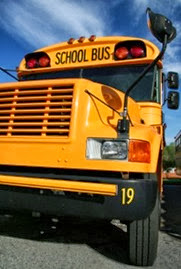 "Children with special needs are inherently more vulnerable to abuse than their typically-developing peers. They may be physically or cognitively less able to defend themselves. They may be less able or unable to communicate that abuse has taken place; they may be in a classroom full of kids who are less able or unable to communicate that abuse has taken place." This story makes my heart feel as if it were physically crushed. Have your children witnessed or been victims of abuse or bullies and if so, how did you manage it with the school?
"Children with special needs are inherently more vulnerable to abuse than their typically-developing peers. They may be physically or cognitively less able to defend themselves. They may be less able or unable to communicate that abuse has taken place; they may be in a classroom full of kids who are less able or unable to communicate that abuse has taken place." This story makes my heart feel as if it were physically crushed. Have your children witnessed or been victims of abuse or bullies and if so, how did you manage it with the school?
Will orphan Davion's courage bring him hope?
Source: http://shine.yahoo.com/parenting/will-orphan-davion-s-courage-bring-him-hope--164213337.html
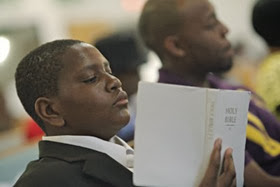 Please share this and let's help Davion find a family that can help him continue to be the best he can be, within the love and security of a forever family.
Please share this and let's help Davion find a family that can help him continue to be the best he can be, within the love and security of a forever family.
A West Florida teen who's been raised in foster care pleaded for a family to take him in during a Sunday service. Will his innocence and faith be all he needs to find a home?
Malaria Vaccine Protects Children for a Year or More
Source: http://www.nbcnews.com/health/glaxosmithkline-aims-market-first-malaria-vaccine-next-year-8C11353826
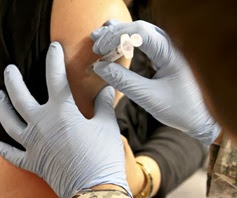 An experimental malaria vaccine helps protect children for as long as 18 months against the deadly parasite, researchers report. The company that makes the vaccine, GlaxoSmithKline, says it will move ahead to develop the vaccine commercially.
An experimental malaria vaccine helps protect children for as long as 18 months against the deadly parasite, researchers report. The company that makes the vaccine, GlaxoSmithKline, says it will move ahead to develop the vaccine commercially.
It's not a home run by any stretch. The vaccine, called RTS,S, cut the number of cases in half after 18 months. Most childhood vaccines provide at least 90 percent protection. And it only reduced the number of cases in infants by a quarter.
Read more.Thursday, October 17, 2013
No Tricks. Just Treats!!!

No Tricks. Just Treats!!!
The Scoop on Nutrition and the Adopted Child
New Webinar!

November 5th, 2013
7:00 PM Central
Q&A: 8:00 PM
Internationally adopted children often suffer physical, cognitive, and behavioral challenges due to poor nutrition in their early years. Once a child comes home, adoptive parents often struggle to make up for nutritional deficiencies.
Join Dr. Dana Johnson, renowned international adoption physician, as he helps parents understand the impact of poor nutrition and how to help children catch up.
- Understand what deficiencies your child may have and why.
- Recognize the impact malnutrition has on a child and what warning signs to look for.
- Learn strategies and tips to help your child catch up and thrive.
Submit your questions for us here or by tweeting them to @adoptiontweet using ##ALPNutrition
Wednesday, October 16, 2013
Thinking About Adoption? Let's Get Started.
 Thinking About Adoption? Let's Get Started.
Thinking About Adoption? Let's Get Started.
Who We Are
Hopscotch Adoptions, Inc is a 501c3 international child placing agency and Hague Accredited since 2008.
Members of:
![]() Joint Council on International Children's Services
Joint Council on International Children's Services
![]() North Carolina Infant Mental Health Association
North Carolina Infant Mental Health Association
![]() Coalition of Licensed Private Adoption Agencies
Coalition of Licensed Private Adoption Agencies
Hopscotch Adoptions, Inc is a 501c3 international child placing agency and
Hague Accredited since 2008.



